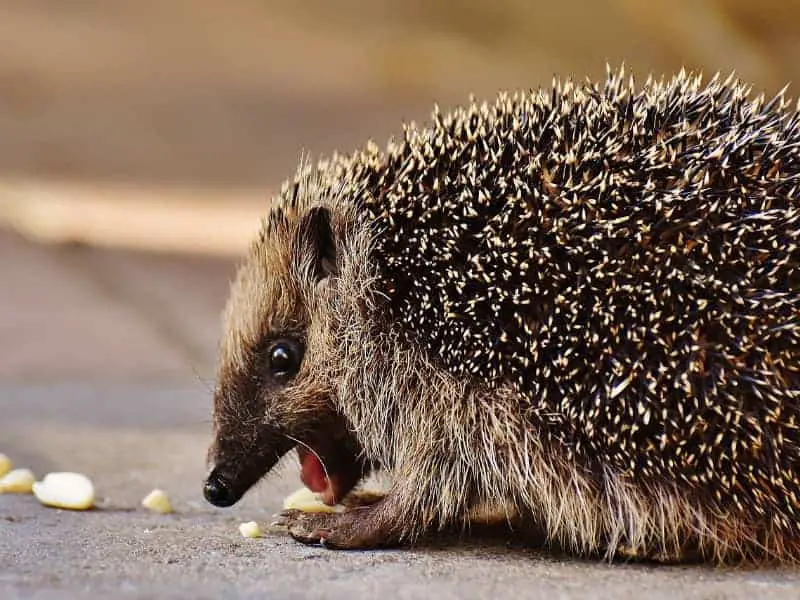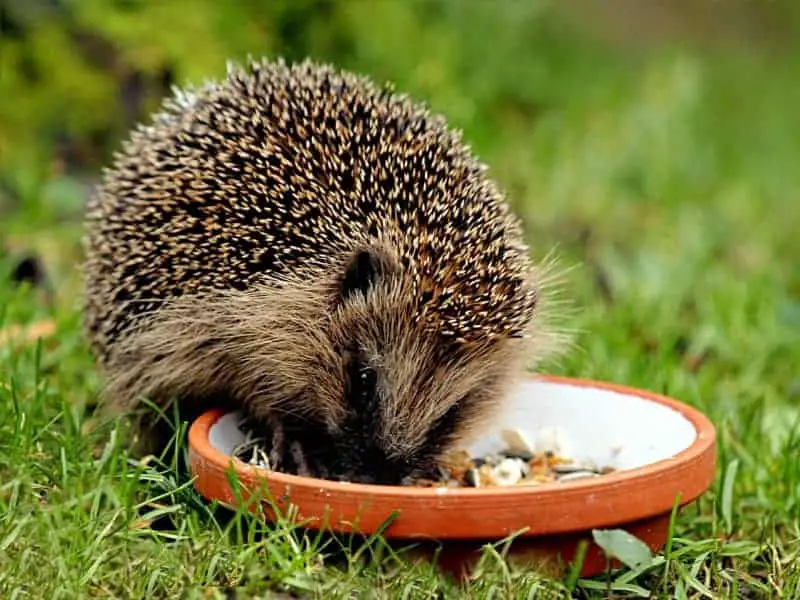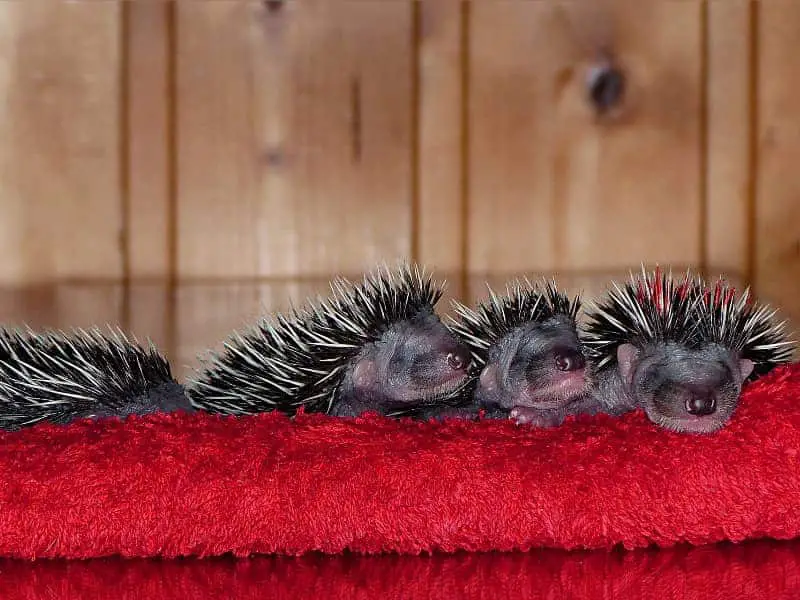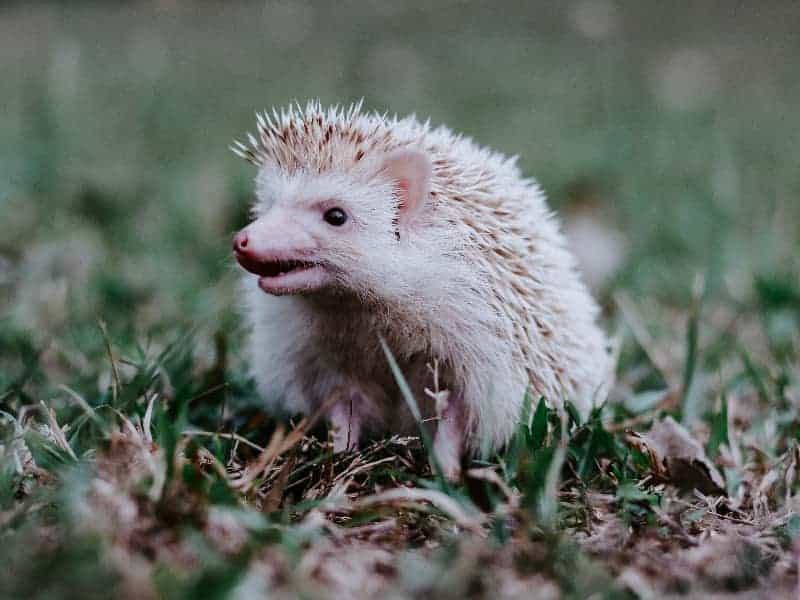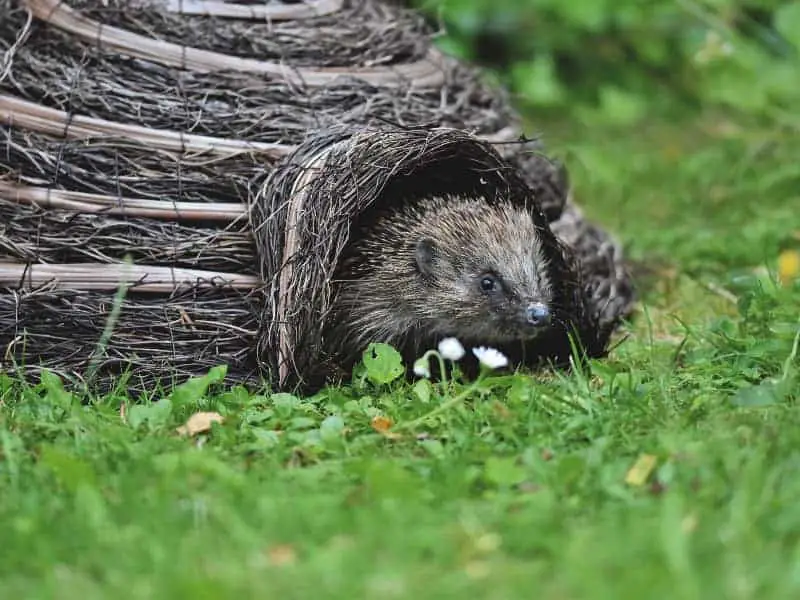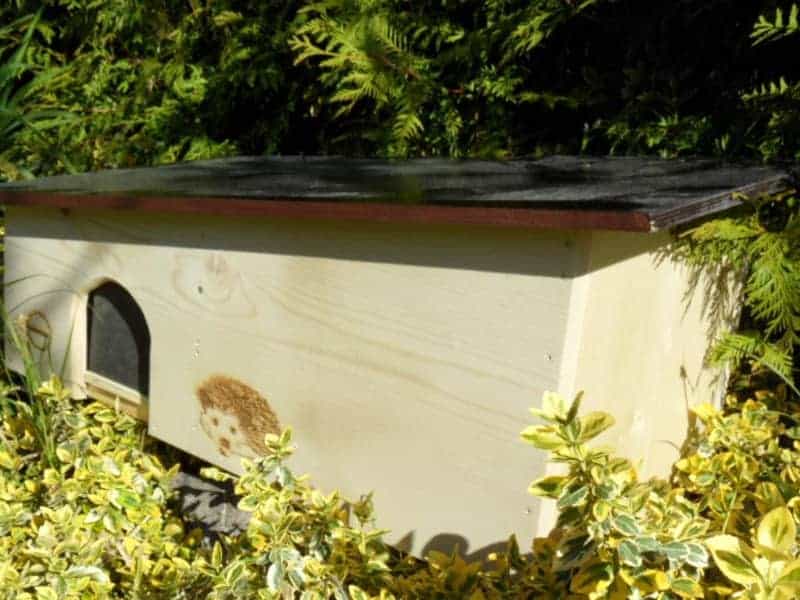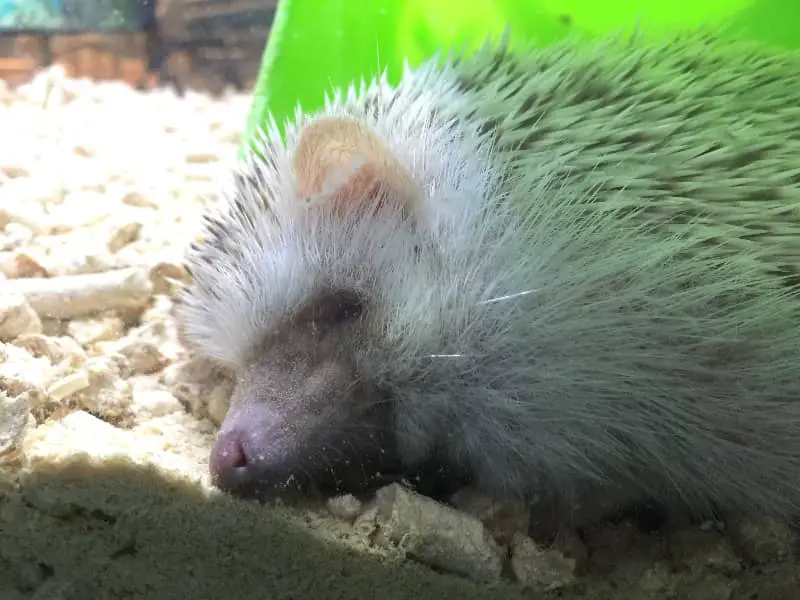
How long do hedgehogs sleep?
Hedgehogs are fascinating animals that are often the subject of curiosity, especially when it comes to their sleeping habits. The question of how long hedgehogs sleep is of interest not only to animal lovers, but also to researchers and conservationists. This introduction provides an overview of the various aspects that influence the sleep cycle of hedgehogs and introduces further discussion.
Why is it important to know how long hedgehogs sleep?
Knowing the sleep cycle of hedgehogs is important for several reasons. First, it helps to better understand the behavior of these fascinating animals. An in-depth understanding can help to better protect hedgehogs in their natural habitat. In addition, it can be useful for people who own a garden and want to house hedgehogs there to make coexistence more pleasant.
In particular, understanding the sleep-wake cycle of hedgehogs is essential when thinking about their health and well-being. Lack of sleep or disturbed sleep can have a negative impact on the hedgehog's metabolism and life expectancy.
What influences the sleep cycle of hedgehogs?
A hedgehog's sleep cycle is influenced by a number of factors, including diet, climate, and daylight. Food supply is particularly important, as hedgehogs need a lot of energy during periods of high activity. When food supply is scarce, this can affect the sleep-wake cycle as the hedgehog spends more time foraging.
The climate and the season are other decisive factors. In temperate zones, hedgehogs hibernate, which naturally changes their sleep-wake rhythm significantly. In summer, on the other hand, they are more active and have different sleep patterns. Daylight also plays a role; hedgehogs are more active at dusk and at night, which is why they rest more during the day.
The natural sleep-wake rhythm of hedgehogs
If you've ever wondered how long hedgehogs sleep or when they are active, this section is for you. We will look at the natural sleep-wake rhythm of hedgehogs in detail to paint a complete picture.
Daily routine: Active and rest phases
Hedgehogs are primarily nocturnal animals. This means they spend most of the day in their hiding places and only become active at dusk. Then they go in search of food, explore their territory and are generally frequently on the move.
It is interesting to note that the day-night rhythm of the hedgehog often varies. During the summer, when the days are longer, hedgehogs tend to sleep less and are more active. They use this time to build up fat reserves for the coming hibernation. In the colder months, this rhythm changes. Hedgehogs then sleep more and are less active to conserve energy. This is mainly crucial for surviving the winter.
Annual cycle: hibernation and active months
The annual cycle has a great influence on the hedgehog's sleeping habits. The best known phase is, of course, hibernation. During hibernation, the hedgehog's body temperature drops and metabolism is shut down. The hedgehog sleeps especially heavily during this time and rarely wakes to drink or move. This sleep usually lasts several months and is an essential aspect of the hedgehog's survival strategy.
In spring, hedgehogs awaken from hibernation and become more active again. The sleep phases become shorter, and the animals are out and about a lot, looking for food and reproducing. This is a very energy-consuming time when sleep is important but not as dominant as in winter.
Features of the hedgehog sleep
Hedgehog sleep is important not only for body regeneration, but also for many other aspects of their lives. This section provides an insight into the special features that make hedgehog sleep so unique.
REM sleep and its importance
The fact that hedgehogs, like other mammals, experience REM (rapid eye movement) sleep is a fascinating aspect of their sleep cycles. REM sleep is a sleep phase that occurs in many animals and in humans, and is particularly important for mental recovery.
During REM sleep, different areas of the brain are activated, and it is believed that important mental functions such as learning and memory formation occur during this phase. Although the exact purpose of REM sleep in hedgehogs is not fully understood, it is likely that it is important for information processing and memory, similar to other mammals. This could primarily play a role during periods of foraging and territorial behavior.
Sleeping positions and sleeping places
Hedgehogs also have special sleeping habits when it comes to their sleeping position and place. Generally they look for a sheltered place, often under bushes, in piles of leaves or in special hedgehog houses. The choice of sleeping place is very important, as it must provide protection from predators and weather conditions.
In terms of their sleeping position, hedgehogs often curl up into a ball. This characteristic position offers several advantages. First, it protects the hedgehog's soft abdomen, which is vulnerable in contrast to its spiny back. Second, the position helps keep the body temperature stable during sleep, especially during the cold winter months.
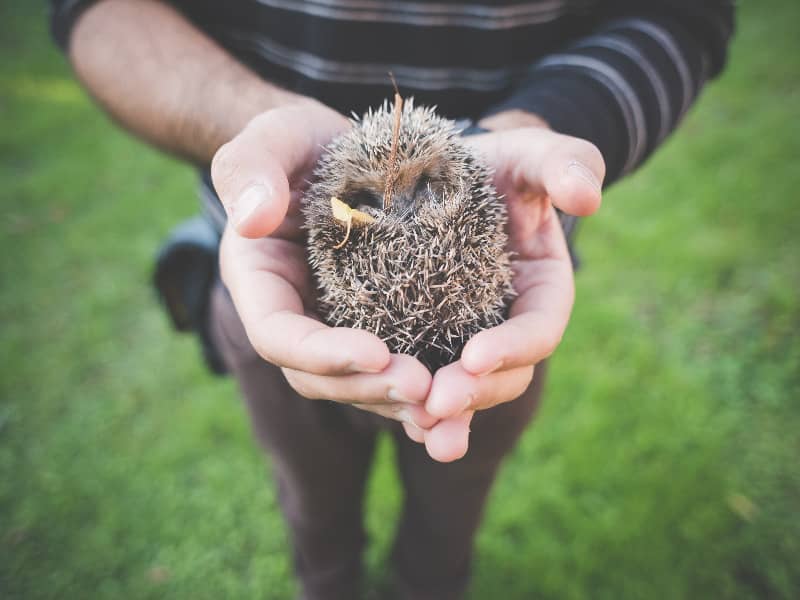
Factors influencing the sleep of hedgehogs
There are numerous factors that can affect hedgehog sleep. Some of these are obvious, while others are less well known. In this section we will look in more detail at diet and climate as factors influencing hedgehog sleep.
Nutrition and sleep
Nutrition plays a crucial role in the sleep-wake rhythm of hedgehogs. A lack of food can significantly affect sleep, as the hedgehog has to spend more time foraging. This is particularly relevant during the active months, when the hedgehog builds up fat reserves for hibernation.
In contrast, an oversupply of food can lead to longer periods of sleep, as the hedgehog has to spend less time foraging. A balanced diet is thus essential for a healthy sleep-wake cycle and for the hedgehog's general well-being. Special food sources, such as insects and fruits, are not only important for nutrition, but also have a direct influence on the hedgehog's sleep quality.
Climate and season
As mentioned in previous sections, climate also has a significant impact on hedgehog sleep. In cold seasons, especially in winter, hedgehogs hibernate. During this time they sleep a lot and are rarely active. Low temperatures cause the hedgehog to reduce its metabolism and thus conserve energy.
The summer season has an opposite effect. The summer temperatures and longer days allow the hedgehog to be more active and sleep less. The hedgehog uses this time to find food and build up fat reserves to help him hibernate.
What you can do to give the hedgehog a good night's sleep
Hedgehogs are welcome guests in many gardens, and there are several things you can do to provide them with a safe and restful place to roost. In this section we will look at how to set up a hedgehog house in the garden and how to avoid disturbing factors.
Setting up a hedgehog house in the garden
A hedgehog house can provide a wonderful refuge for hedgehogs looking for a suitable place to roost. It should be placed in a sheltered and quiet place in the garden, ideally near bushes or other natural hiding places.
The house should be made of sturdy material like wood and have a small opening for the hedgehog to crawl inside, but keep larger animals outside. Inside you can put straw or leaves to make it cozy for the hedgehog. This protected space allows the hedgehog to feel safe while sleeping and helps maintain its body temperature, especially during the winter.
Which disruptive factors should be avoided?
Disturbing factors can significantly affect the hedgehogs' sleep. These include loud noises, frequent startling by pets or people, and toxic substances such as pesticides or rat poison. It is important to minimize such factors to provide a safe environment for the hedgehog.
For example, the garden should be kept as natural as possible and the use of chemicals should be avoided. Nocturnal light sources, such as garden lamps, should also be avoided, as they can disturb the hedgehog's natural sleep-wake rhythm. Pets should not be allowed to roam freely in the garden in the evening, if possible, so as not to disturb the hedgehogs.
Conclusion: How long do hedgehogs sleep?
Hedgehog sleep is a fascinating and complex subject that is influenced by several factors. Although the general sleep duration is around 10 hours, it varies depending on age, health status and season. A deeper look into the sleep phases shows that hedgehogs also have REM sleep, which is important for mental processes.
Influencing factors such as diet and climate play an important role in regulating the hedgehog's sleep-wake rhythm. While food intake influences the activity phases and thus also the sleep duration, the climate also has an impact on the hibernation of the animal.
Everyone can help provide hedgehogs with a good night's sleep. Simple measures such as setting up a hedgehog house in the garden and avoiding disturbing factors can make a big difference. By better understanding the sleeping habits and needs of hedgehogs, we can help ensure that these fascinating animals can lead healthy and fulfilling lives.
This concludes my blog post on the topic of how long hedgehogs sleep. I hope it provides a comprehensive and informative overview and is helpful for anyone who wants to learn more about the sleeping behavior of hedgehogs.
Author

-
Garden animal - A life with nature
Welcome to my animal blog! My name is Dirk and I am happy to take you on my journey through the fascinating world of animals and gardening.
Born 54 years ago, I have had an insatiable curiosity for the animal world around me since childhood. Although I have moved professionally in other industries, my true passion has always been animals and nature. It is remarkable how a small garden has become such an important part of my life.
Many of my fondest memories are associated with the animals that share our home. Whether it's the curious squirrels that scurry across the trees in the morning, the colorful variety of birds that visit our feeders, or the busy bees and butterflies that pollinate our flowers, every moment with them is invaluable to me.
This blog is my contribution to share my experiences, discoveries and insights with like-minded people. Here I will share stories of unforgettable encounters with animals, give tips on gardening and creating wildlife-friendly habitats, and take you on my journeys through nature.
Thank you so much for being here!
Cordial,
Dirk aka garden animal
Last posts
- 27. February 2024PetsVeganes Hundefutter – Grün und Gesund?
- 18. January 2024ChickensOregano für Hühner
- November 27, 2023HamsterDiurnal hamsters
- November 24, 2023HamsterHamster hammock

